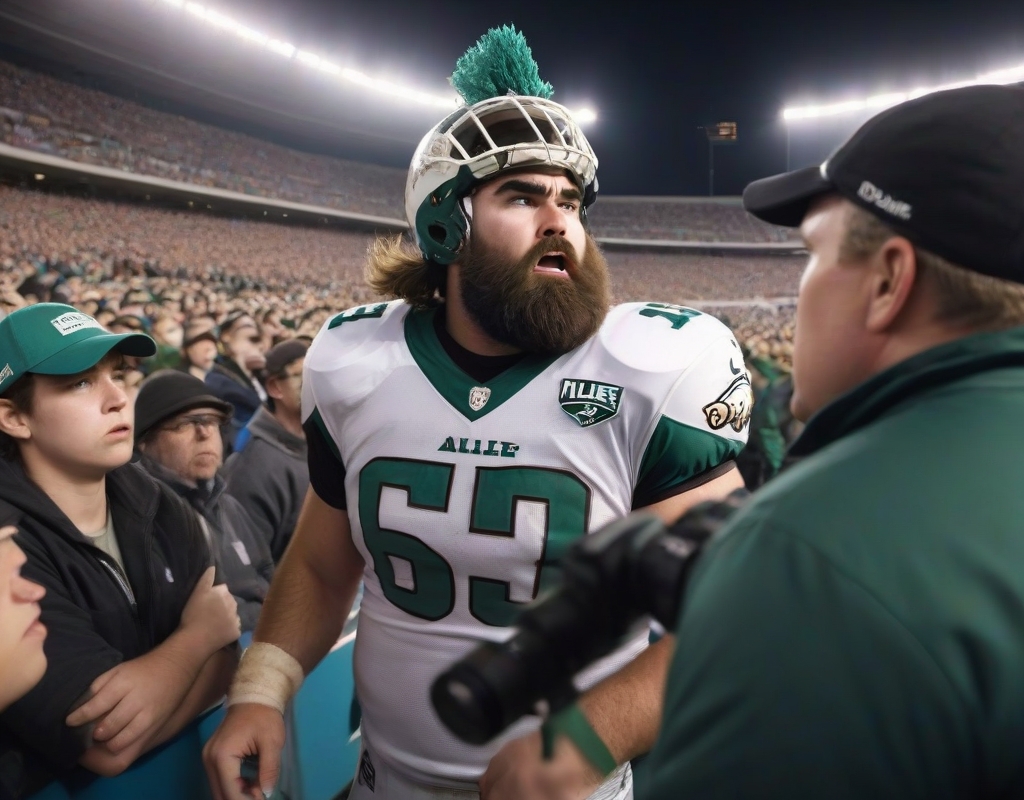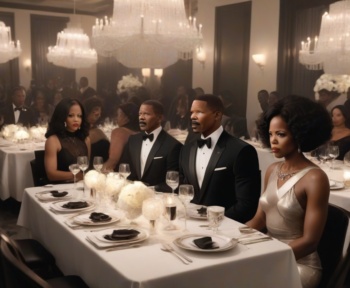In the wake of a recent election, the nation is confronted with a mixture of political and social repercussions. Among these is an episode involving Jason Kelce at a collegiate football game—a moment now receiving widespread attention due to its combustible blend of personal indignation and public consequences. This incident, laden with cultural implications, provides a lens through which to view the broader societal challenges of dealing with inflammatory altercations.
Jason and Travis Kelce, brothers deeply entrenched in the world of professional sports, have taken markedly different paths. Jason, having just retired from a distinguished tenure with the Philadelphia Eagles, contrasts sharply with Travis who continues to dominate as a tight end for the Kansas City Chiefs. Notably, Travis has also made headlines recently due to his high-profile relationship with Taylor Swift. While Travis has generally maneuvered through increased public interest with relative ease, Jason finds himself embroiled in controversy that highlights the ongoing struggle against societal prejudices.
The incident that sparked this widespread scrutiny occurred during a football game where a fan targeted Travis with a homophobic slur. Defending his brother, Jason responded by forcibly taking and damaging the fan’s phone. Captured on video, the scene escalated as the fan demanded his property back, which led Jason to unfortunately retaliate using similar derogatory language. This act of reciprocated hate has sparked a serious backlash, fueling a debate about appropriate responses to provocation.
Reacting to the fallout, Jason issued a public apology during an ESPN’s Monday Night Football pregame show, expressing regret over his actions and acknowledging that meeting hate with hate was not a solution. His apology coincided with an ongoing investigation at Penn State University, exploring possible charges including criminal mischief and disorderly conduct, thus adding legal complexity to the incident.
Public reaction has been deeply divided. Some defend Jason’s actions as a protective measure for his brother, though flawed, against flagrant verbal assault. Others criticize his reciprocation of hate speech, underscoring the peril of such responses. This division mirrors a larger societal debate about confronting bigotry appropriately in public spheres.
The roles of Jason and Travis Kelce in this scenario also prompt a reflection on how high-profile sports figures might wield their influence to foster societal advancement on issues like tolerance and discrimination. Athletes in recent history have increasingly used their platforms to spotlight injustices, ranging from taking a knee against racial discrimination to promoting LGBTQ+ rights. The Kelce brothers stand in positions of notable cultural influence, potentially setting positive or negative precedents that could shape public discourse.
To better understand the nuances of this incident, it’s useful to consider the historical struggle against discrimination in sports. Over the decades, many athletes have confronted issues like racism and homophobia, with pioneers like Jackie Robinson challenging racial barriers. Yet, challenges abound as anti-LGBTQ+ rhetoric has notably increased, according to organizations like GLAAD, and hate crimes have risen as documented by groups like the Center for the Study of Hate and Extremism. These trends reveal the persistent need for vigilance and activism.
Expert opinions on resolving heated conflicts typically favor methods that promote understanding and reconciliation over retaliation. Sociological perspectives argue that empathetic, educational responses rather than combative reactions, might better de-escalate conflicts and encourage constructive dialogue. Meanwhile, other advocates believe in staunchly opposing aggression to prevent future occurrences, illustrating the complexities of balancing defensive reactions with positive advocacy.
Navigating forward, the episode with Jason Kelce spotlights the intricate dilemma of responding to defamatory provocations with dignity while fostering a societal ethos of inclusion. His experience underscores the importance of reflecting on these interactions and promoting dialogue centered on empathy and awareness.
This situation exemplifies the delicate balance required between personal convictions and the responsibilities entailed by public visibility. The ongoing quest to counteract hate with reasoned and compassionate responses continues, as society endeavors towards an overarching goal: a culture where respect and understanding prevail over divisiveness and intolerance. Through education, dialogue, and a collective commitment to empathy, there is hope for substantial progress against ingrained social prejudices.




